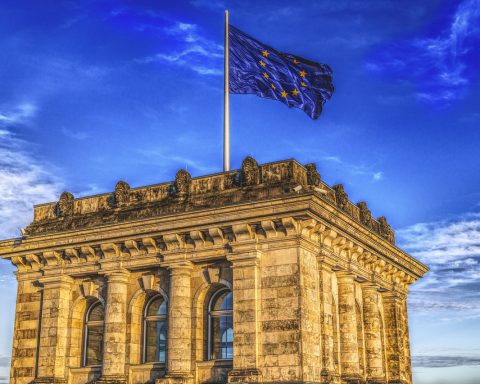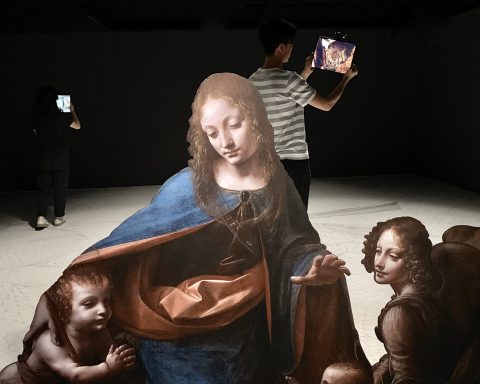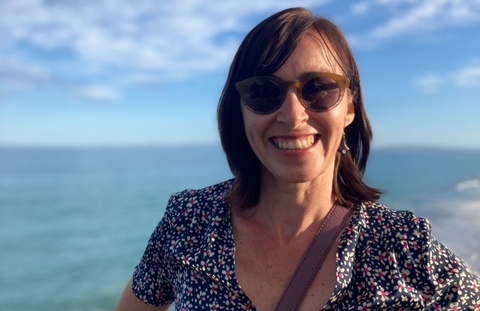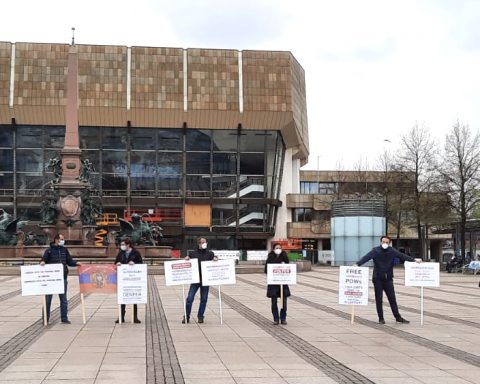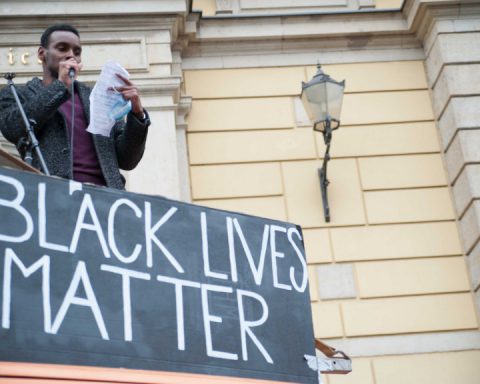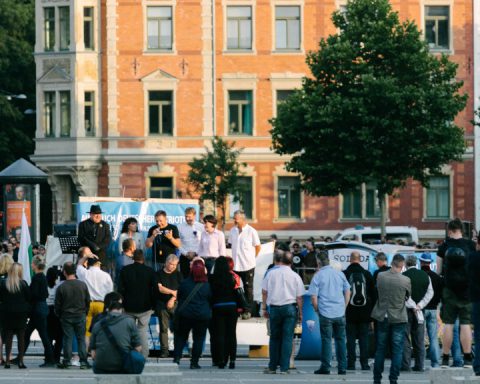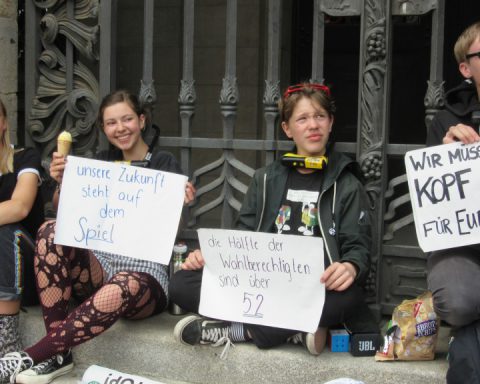The humanitarian crisis sweeping across Europe as refugee flows thicken also carries problems related to press freedom, longtime journalist Jane Whyatt points out. A Manchester native who has worked with the BBC and owns a production company, Whyatt moved to Leipzig last May to dedicate herself to helping establish a transnational non-profit organization to protect freedom of the press in Europe.
It is aptly named European Centre for Press & Media Freedom (ECPMF).
Journalists in the European Union – whose member countries’ press freedom statutes and interpretations tend to differ from one another – are being charged with crimes and even being jailed for attempting to expose abuses. They are also being prevented by various factors from more fully reporting on the current refugee situation, she said
“The coverage of the refugee crisis makes you realize that across Europe there is a range of different opinions, and they are not being reflected,” Whyatt said during an interview with The Leipzig Glocal this week. “I don’t think the people of Europe are getting the full picture, and I feel there is a lot of propaganda and misleading headlines.”
A highlight of the upcoming 2015 ECPMF conference is precisely a panel in which a Syrian journalist will share his own experience as a refugee, and other journalists, professionals and press freedom advocates will share their experiences related to reporting on or observing coverage of the refugee crisis.
The ECPMF aims to cooperate with the EU at the institutional level to attempt to reform libel laws and ultimately consolidate press freedom laws into a common, EU-wide statute (an important step having been the issuance of the European Charter on Freedom of the Press), according to Whyatt. The centre is also launching a journalist-in-residence program for media professionals under pressure for their investigative work, and is poised to hear out individual cases of media professionals across the EU. Currently, ECPMF is awaiting the consolidation of its status as an independent non-profit European cooperative.
The ECPMF receives funding and support from the European Commission, the German Foreign Ministry, the state of Saxony, the city of Leipzig, as well as Sparkasse Leipzig’s Media Foundation. The media foundation, which hosts the centre’s offices, worked long and hard to have it established in Leipzig, its former head Lutz Mükke said. The East-German Mükke added that Leipzig proved the ideal place to house the ECPMF for several reasons: The city spearheaded the Peaceful Revolution and press freedom is a big theme here; it’s distant enough from big political and media power centres to be considered relatively neutral ground while being centrally located in Europe and well-connected in terms of transport; and it represents a bridge between East and West in Europe.
“Leipzig is both East and West at the same time,” Mükke said. “It’s a place you can easily agree on.”
The ECPMF conference nicely coincides with Lichtfest 2015, which takes place Oct. 9th in Leipzig, commemorating each year the biggest demonstration of the Peaceful Revolution in 1989. This year marks 25 years since German (re)unification.

